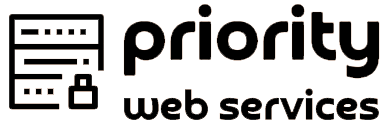FAQ's
Ever wonder what is website hosting? Why do I need to have an SSL certificate on my website? Should I really get website backups with my hosting plan? Is WordPress the right choice for my website? These are all very good questions to be asking and on this very page at PWS we will answer as many questions as we can for you.
Hosting is comprised of a variety of different services. And although it is possible to have all your hosting services through a single company, it isn’t uncommon to see a site have each of their hosting services provided through several hosting companies. As an example, you could have your:
- Domain Registration with GoDaddy
- Your DNS hosted on a private server
- Your web hosting with Media Temple
- Your CDN with CloudFlare
- Your email hosting with G Suite (Google)
Websites are hosted, or stored, on special computers called servers. When Internet users want to view your website, all they need to do is type your website address or domain into their browser. Their computer will then connect to your server and your webpages will be delivered to them through the browser.
URL stands for Uniform Resource Locator. A URL is nothing more than the address of a given unique resource on the Web. In theory, each valid URL points to a unique resource. Such resources can be an HTML page, a CSS document, an image, etc. A domain name is a human-friendly text form of the IP address. URL is a string that represents the complete web address of any web page.
You can inquire a URL to view the details by URL lookup, including the URL category and the category type. To inquire and view the details of a URL, take the following steps: On the Navigation pane, click Configure > Content > URL Filter/Web Content/Web Posting to visit the corresponding page.
An online store gives your business a unique edge that no brick-and-mortar ever could — the ability to serve customers from around the world, 24/7/365. If you’re ready to open your doors online, here’s how to get up and selling in no time.
- Pick your products
Think about what you want to sell online, and make sure you have the resources or inventory to list items — be it services, digital or traditional products — for sale on your site. - Choose a plan
If you’re offering services, like yoga lessons or career coaching, check out our Premium plan. It lets you accept payments from customers who book services on your website. If you need to sell products, opt for the Ecommerce plan to get everything you need to power your online store. - Set up your online store
Our easy-to-customize store templates help you quickly set up your store, complete with product descriptions, prices, shipping and payment options. Just pick one to get started, or dive right into the store builder and type in your industry to start with a relevant template. - Pick a domain name
Your domain name is the address where your online store lives. Pick something that’s the same as, or similar to, your business name. This makes it easier for people to remember your website’s address and reinforces your brand. - Start selling online
This is the fun part! Sell your products and accept payments directly on your online store, or connect your site to popular marketplaces and social channels, like Amazon or Instagram, to sell in more places. Don’t worry, your inventory syncs across all your sales channels, so you can avoid overselling while tracking everything from your Priority Web Services Online Store dashboard. - Market your business
Let people know about your business and what services or products you offer with built-in marketing tools. Create email campaigns, reply to social posts and track your online presence right from your Priority Web Services Online Store dashboard. The more you show up online in all the places your customers shop, the more chances you get to turn online interactions into customers.
